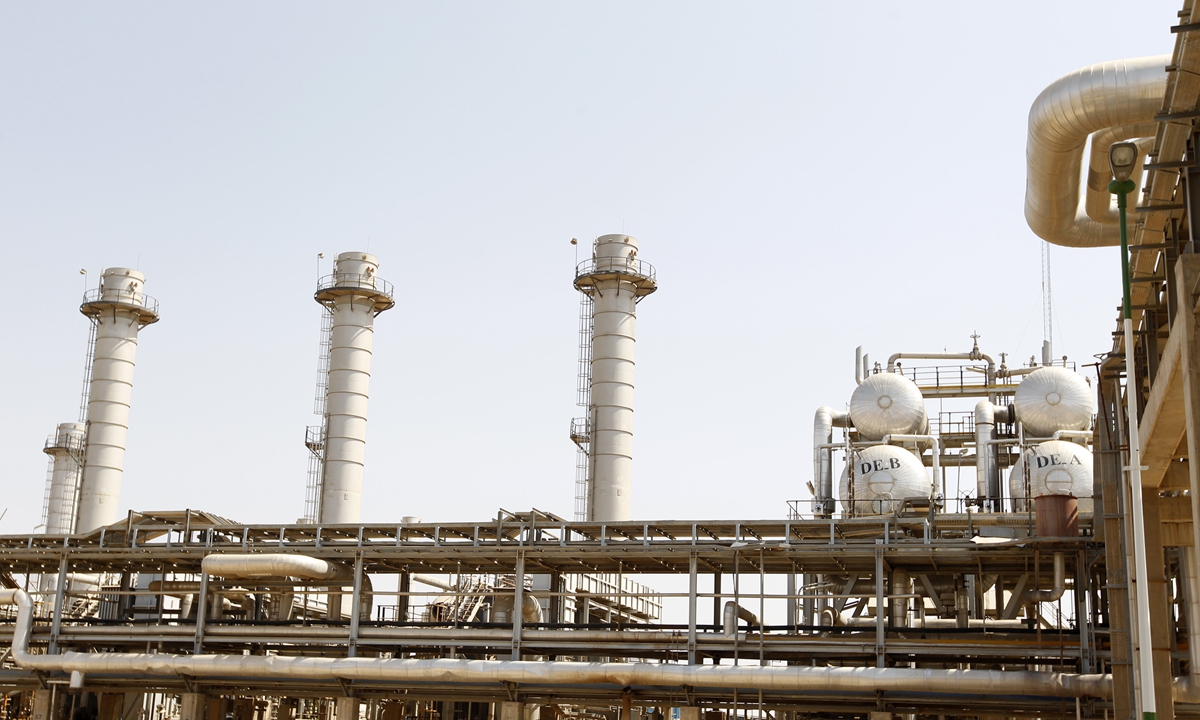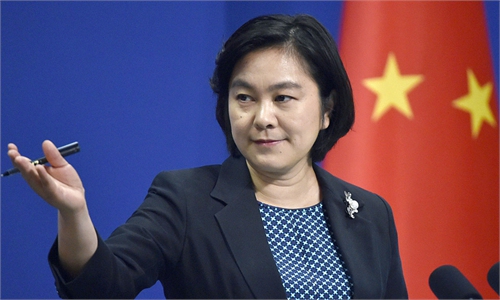
The Mahshahr Petrochemical Complex is seen in the city of Mahshar in the Khuzestan province in southwestern Iran on September 28, 2011. Photo: VCG
Talks between world powers and Iran on reviving the 2015 nuclear deal is set to resume in Vienna, Austria on Monday. While global attention mainly focuses on the nuclear agreement, results from the talks may also have implications for global crude supplies in the future. As the US and other economies face high crude prices and surging inflation, there is also expectation that the talks should result in the US' lifting of unilateral sanctions against Iran.
It is hard to predict whether the talks will reach a breakthrough, but from an economic point of view, if the US wants to curb serious inflation by driving down global crude prices, then whether the talks will allow Iran to open up its vast crude oil reserves to the rest of the world is of vital importance to the US economy.
On Monday, global oil prices rebounded, recovering ground after Friday's slump of about $10 a barrel over renewed fears about the spread of the Omicron variant. The emergence of the new variant may have altered market expectations, but it may only increase the volatility of oil prices, much to the disappointment of those who are mired in serious inflation.
Analysts believe that although the highly contagious Omicron has caused panic across large parts of the globe, the information collected over the past weekend is far from sufficient for the market to understand the potential impact and seriousness of the variant. Some even predict that panic-selling may prove to be unfounded, and that oil prices could jump back to around $80 a barrel.
In fact, judging from the market reaction to the US-led coordinated effort to release oil from strategic reserves, the US may need a clearer estimation about its ability to influence the global energy market. After the US said it would release 50 million barrels and a number of other countries, including India, Japan, the UK, China and South Korea, were also reported to have similar plans to bring down oil prices, the market seemed take a skeptical approach over whether strategic reserves could do much for the current oil prices as both WTI and Brent oil prices jumped up on the same day.
Currently, global oil consumption is around 100 million barrels a day. The combined oil release from strategic reserves in all likelihood failed to meet a single day of market supply, which is far from affecting the entire supply and demand relationship. Even worse, many have voiced concerns that the coordinated release could prompt OPEC and its allies to delay their plan to increase monthly production.
Therefore, given the rising global demand for energy, Iran's oil sales could be a key factor in determining the supply and demand. Iran has the world's fourth largest oil reserves. If the US eases its sanctions, Iran can ramp up its crude production from 2.1 million barrels a day to 3.8 million barrels a day, according to some estimates. Once Iran resumes exports, it could sell 40 to 50 million barrels to the rest of the world on a monthly basis, which could be much more effective in bringing down oil prices than the coordinated oil release.
While asking others to release their oil reserves, the US continues to impose sanctions on Iran. That's not the right approach, especially at a time when the US faces skyrocketing inflation. Such an approach affects not only the US but also other countries.
As talks are underway in Vienna, the international community should come up with a new consensus toward US sanctions against Iran. Ultimately, the US needs to ease its unilateral sanctions against Iran, or it is essential for other countries to find ways to circumvent US restrictions, including settling oil trade with the Chinese yuan or other payment options.


